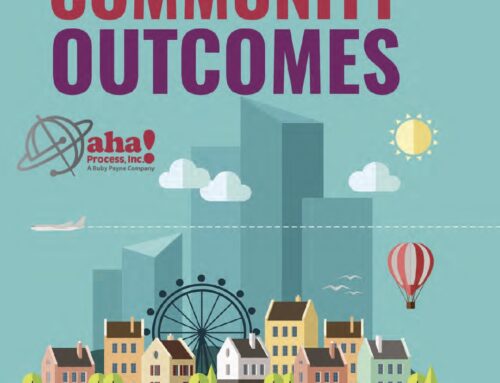 Guest blogger, Gene Krebs, is a Senior Fellow at The Center for Community Solutions and a former member of the Ohio House of Representatives. Gene is currently working with The Center for Community Solutions on a series of video interviews of thought leaders and youthful entrepreneurs.
Guest blogger, Gene Krebs, is a Senior Fellow at The Center for Community Solutions and a former member of the Ohio House of Representatives. Gene is currently working with The Center for Community Solutions on a series of video interviews of thought leaders and youthful entrepreneurs.
Follow Gene on Twitter @GO_GeneK.
Let me tell you more than you need to know.
I have always joked that when I die, I want my tombstone to read “never lost a game while coaching daughters’ T-ball games.” Which is true, but the reason we never lost was that I only had two rules: when the game became impossible for us to lose, everyone switched positions so the little girls were incentivized to stop picking dandelions in the outfield and to pay attention to the game. The other one was that the parents were not allowed to shout out instructions to the players on the field. I had noticed too often that, when the ball was hit to the girls, they would freeze until getting instructions from the sidelines. Instead, if they made a mistake on the field, I would call time, go out, and ask them to look around and tell me what happened. They would pause, look, see what happened, have an aha moment, inform me of what they did wrong, and rarely make the mistake again. In contrast, the parents could only shout vague words of encouragement. We crushed our opponents, plus the girls had fun.
A quarter century later, I found out the same philosophy can be used to break the cycle of generational poverty.
Every couple of months, my friend Jennifer Brunner, former Secretary of State and former Democratic candidate for the US Senate, and I have coffee in a prominent coffee house in downtown Columbus because we find each other insightful, and we both think it is important for people to see a pedigree Republican and a pedigree Democrat sitting down and being pleasant to each other. Seriously. Our national political discord has declined so much that common civility is now viewed as unique and inspiring.
Jennifer urged me at one of these coffees to interview Phil DeVol, co-author of Bridges Out of Poverty and related series. I did so, and the interview stuck with me. It just kept rolling around in my head. I began to talk up the interview to folks on my own time, not in my role as Senior Fellow with The Center for Community Solutions.
One of the people I mentioned it to was Representative Tim Derickson; he saw the video, had the same response and couldn’t get the concepts out of his head.
In short, generational poverty has a pernicious cycle, but it is one that can be broken using the Bridges Out of Poverty model. Public policy is rarely linear; life is so complex that direct approaches seldom operate the way we envisioned them working.
As a society, we have tried throwing money at poverty, jailing people for being poor and everything in between. The results do not seem to look entirely fruitful from these efforts; there is a stubborn core of poverty. But, as Monty Python once stated, “Now for something completely different.”
What you find in this ten-minute video is that the Ohio House of Representatives, my old chamber, has now formed a committee (chaired by Representative Derickson) that is completely refocusing how we look at poverty, workforce, mental health, drug addiction and related issues, and it is heavily informed by the “Bridges” books.
I encourage you to look at the video, “First We Must Sell Our Helicopters” and pass this on to anyone who has an interest in public policy. Here is the original interview with Phil Devol, and you can see why it stuck with Representative Derickson and me.
Does it stick with you? Can you help by sending this out to others? If so, I am calling in every chit you owe me, and I will owe you much more.
Remember, this all began due to one casual conversation between Jennifer Brunner and me. Think about what can happen if hundreds of my friends start to send this out…








